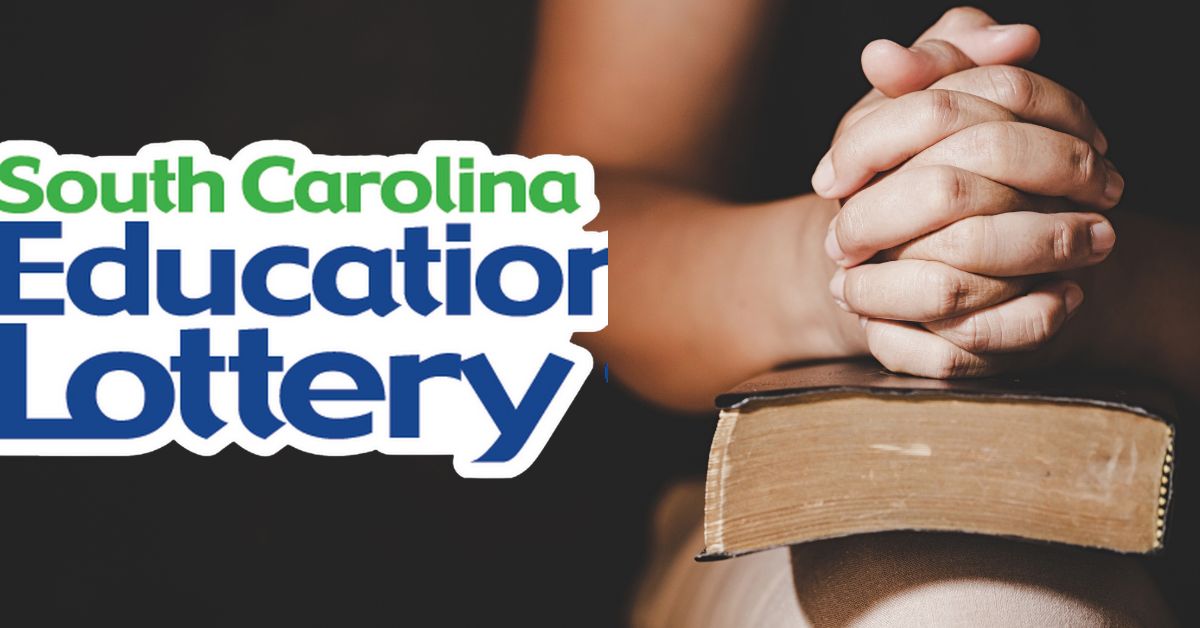Introduction
Since its launch in 2001, the South Carolina Education Lottery (SCEL) has been a major source of funding for state-wide educational projects. The SCEL helps students all around the state by funding numerous educational initiatives and scholarships with money raised from the sale of lottery tickets. This blog offers a comprehensive overview of the SC Education Lottery’s function in improving South Carolina education by examining its design, main elements, and effects.
The Genesis and Purpose of the SC Education Lottery
Historical Background
Following a statewide referendum in 2000, where voters approved the creation of a state-run lottery to finance educational initiatives, the SCEL was created. Since its inception in January 2002, the lottery has been a vital source of income for the state’s educational system.

Mission and Objectives
The primary mission of the SCEL is to raise funds to support educational programs and scholarships in South Carolina. Its objectives include:
- Providing financial assistance to students through scholarships.
- Funding K-12 education programs.
- Supporting educational infrastructure improvements.
- Enhancing higher education opportunities.
Structure of the SC Education Lottery
Organizational Structure
The South Carolina governor appoints a commission to oversee the SCEL. The Commission is in charge of managing the business and making sure the lottery complies with all ethical and regulatory requirements. Important SCEL divisions include:
- Executive Office: Provides overall leadership and strategic direction.
- Sales and Marketing Division: Manages ticket sales, marketing campaigns, and retailer relations.
- Finance Division: Handles financial management, including budgeting, accounting, and revenue distribution.
- Security and Legal Division: Ensures the integrity of lottery operations and compliance with state laws.
How the Lottery Works
Types of Games
The SCEL offers a variety of games, including:
- Instant Games (Scratch-offs): These are tickets with pre-determined outcomes, where players can win instantly.
- Draw Games: Games such as Powerball, Mega Millions, Palmetto Cash 5, and Pick 3/Pick 4, where players select numbers, and winning numbers are drawn at random.
- Second-Chance Games: Special promotions where non-winning tickets can be entered for additional chances to win prizes.

Ticket Sales and Revenue
Revenue from ticket sales is the primary source of funds for the SCEL. The lottery operates through a network of licensed retailers across the state, ensuring widespread availability and convenience for players.
Table 1: SCEL Revenue Breakdown (Example Data)
| Year | Total Revenue ($ million) | Prize Payouts ($ million) | Education Funding ($ million) |
|---|---|---|---|
| 2020 | 1,500 | 900 | 450 |
| 2021 | 1,600 | 950 | 480 |
| 2022 | 1,700 | 1,000 | 510 |
Allocation of Funds
The SCEL devotes a sizeable amount of its earnings to scholarships and educational initiatives. Funds are allocated to different educational programs in accordance with decisions made by the state budget.
Impact on Education
Scholarships and Grants
One of the most significant contributions of the SCEL is providing financial assistance to students through scholarships and grants. Major scholarship programs funded by the lottery include:
- LIFE Scholarship: Provides funding for students attending in-state colleges and universities based on academic achievement.
- HOPE Scholarship: Offers financial support for students who meet specific academic criteria but are not eligible for the LIFE Scholarship.
- Palmetto Fellows Scholarship: Targets high-achieving high school students, encouraging them to pursue higher education in South Carolina.
- Lottery Tuition Assistance: Helps cover tuition costs for students attending two-year technical colleges.
Table 2: Scholarship Funding Distribution (Example Data)
| Scholarship Program | Number of Recipients | Total Funding ($ million) |
|---|---|---|
| LIFE Scholarship | 30,000 | 150 |
| HOPE Scholarship | 10,000 | 25 |
| Palmetto Fellows | 5,000 | 50 |
| Lottery Tuition Assistance | 20,000 | 60 |
K-12 Education Programs
The SCEL funds numerous K-12 educational programs, enhancing the quality of education in public schools. Key areas of funding include:
- Teacher Salaries and Training: Supporting competitive salaries and professional development opportunities for educators.
- Technology in Schools: Providing funds for the purchase of computers, tablets, and other technological tools to enhance learning.
- Early Childhood Education: Funding programs like First Steps to School Readiness, which prepares young children for school.
Higher Education and Infrastructure
The SCEL provides money for program expansion and infrastructural upgrades to higher education institutions. This money supports the upkeep of contemporary facilities and the expansion of the course and service offerings at colleges and universities.
Economic and Social Impact
Economic Benefits
South Carolina experiences substantial economic benefits from the SCEL, including increased employment and economic expansion. Local companies, especially the network of shopkeepers that sell lottery tickets, are supported by the lottery’s revenue. Furthermore, the SCEL’s educational funding contributes to the creation of a better educated workforce, which is critical to the state’s long-term economic growth.

Social Benefits
There are several social advantages to the SCEL in addition to its economic effects. The lottery helps lessen the financial strain on families by providing funds for educational initiatives like scholarships, which increases access to higher education for individuals from a variety of backgrounds. Greater educational accessibility encourages social mobility and lessens income disparity.
Challenges and Criticisms
Challenges
Despite its successes, the SCEL faces several challenges:
- Problem Gambling: As with any lottery, there is a risk of problem gambling among players. The SCEL works to mitigate this through responsible gaming initiatives and support services.
- Dependence on Lottery Revenue: Over-reliance on lottery revenue for educational funding can be problematic, especially if ticket sales decline.
- Equitable Distribution of Funds: Ensuring that funds are distributed equitably across various educational programs and regions can be challenging.
Criticisms
The SCEL has faced criticism on several fronts, including:
- Regressive Nature: Lotteries are often criticized for being regressive, disproportionately impacting lower-income individuals who spend a higher percentage of their income on lottery tickets.
- Transparency and Accountability: Ensuring transparency in the allocation and use of funds is crucial to maintaining public trust.
Future Directions
Enhancing Transparency and Accountability
The SCEL is still working to improve accountability and openness in its operations. This entails putting in place strong oversight procedures and releasing comprehensive reports on revenue creation and fund distribution on a regular basis.
Expanding Educational Support
To further its impact, the SCEL is exploring ways to expand its support for education. Potential initiatives include:
- Increasing Scholarship Amounts: Providing more substantial financial support to students to cover rising tuition costs.
- Supporting Innovative Educational Programs: Funding new and innovative educational programs that address emerging needs and challenges in education.
- Strengthening Partnerships: Building stronger partnerships with educational institutions and community organizations to maximize the impact of lottery funds.
Promoting Responsible Gaming
The SCEL is dedicated to encouraging ethical gaming. This entails making sure lottery games are responsibly marketed as well as offering assistance and resources to those who are battling gambling addiction.
Conclusion
One of the main sources of funding for education in the state is the South Carolina Education Lottery. The SCEL provides students with the tools they need to achieve by funding scholarships, K–12 programs, and higher education initiatives using the substantial revenue it receives from the sale of lottery tickets. Despite obstacles and complaints, the SCEL’s dedication to openness, responsibility, and responsible gambling guarantees that it will always have a favorable effect on South Carolina’s educational environment. The SCEL’s emphasis on encouraging ethical gaming and increasing educational support will help it become even more valuable to the state as it develops.

I’m genuinely impressed with your take on this topic. Very insightful.